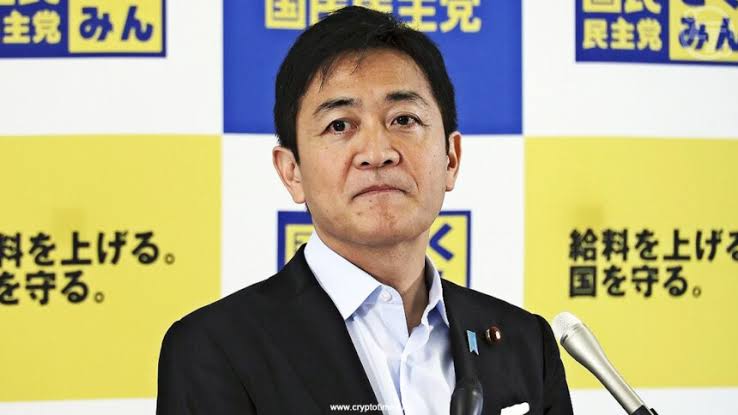Yuichiro Tamaki, Japan’s DPP leader, has proposed reducing the crypto tax cap from 55% to 20% before the upcoming elections.
Yuichiro Tamaki has recently addressed the emotional aspect of Japan’s crypto community in response to a recent statement he made regarding crypto tax. A recent X post was shared by the leader of Japan’s Democratic Party for the People (DPP) to disclose his policy statement for the forthcoming general election.
As indicated in the post, Tamaki advocates for a 20% flat tax on crypto gains. Although this may be a political ploy to curry favor with crypto enthusiasts, the audacious proposal could substantially affect Japan’s expanding crypto market.
A Call for Easier Crypto Taxes and Regulations in Japan
At present, cryptocurrency gains in Japan are classified as miscellaneous income. This implies they are subject to a tax rate of up to 55%.
This has been a significant concern for investors for an extended period, notably because other investment forms are subject to significantly lower tax rates.
Tamaki’s party advocates for a 20% tax cap to resolve the matter, elevating crypto investments to the same level as stock and real estate profits. Tamaki’s post is partially composed of the following:
“If you believe that cryptocurrency should be taxed at a flat 20% rate, instead of being treated as miscellaneous income, please vote for the Democratic Party for the People.”
Additionally, the party has incorporated tax exemptions for crypto-to-crypto exchanges into its policy statement and is currently advocating for them.
Finally, the DPP intends to increase the leverage limit on crypto trading from 2x to 10x, which is anticipated to attract more traders and speculators.
At present, Japan’s leverage ratio is perceived as restrictive, which has served to discourage active trading on domestic exchanges. Daiki Moriyama, the director of blockchain firm Oasys, has suggested that the leverage ratio may have been the primary factor contributing to the low trading volumes in Japan, which have resulted in financial difficulties for local exchanges.
Potential Obstacles to Tamaki’s Proposal
Tamaki’s concepts have the potential to influence Japan significantly. This is particularly true because it can make the country a more appealing destination for crypto traders.
Nevertheless, converting the proposals into legislation will be more complex than anticipated. This is because the DPP occupies only seven seats in Japan’s 465-member House of Representatives.
However, there are indications of an increasing level of backing. The DPP has the potential to double its representation in single-seat districts and increase its presence in proportional representation areas, according to a recent poll conducted by Asahi Shimbun.
However, it is yet to be determined whether the party’s objectives will be sufficiently appealing to a significant audience to result in the implementation of these crypto tax reforms. As Japan prepares for the October 27 election, the outcome will be instrumental in determining the future of crypto regulation in the country.



